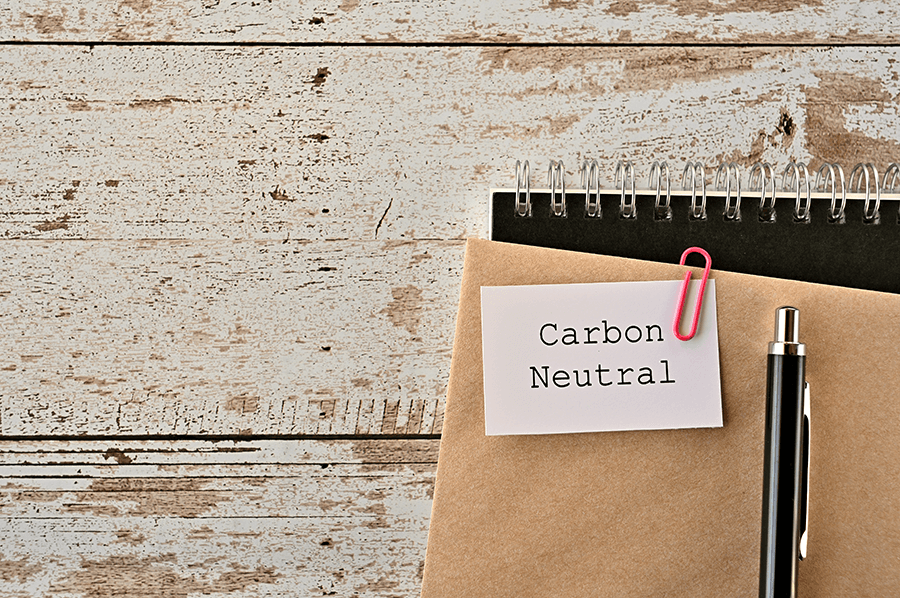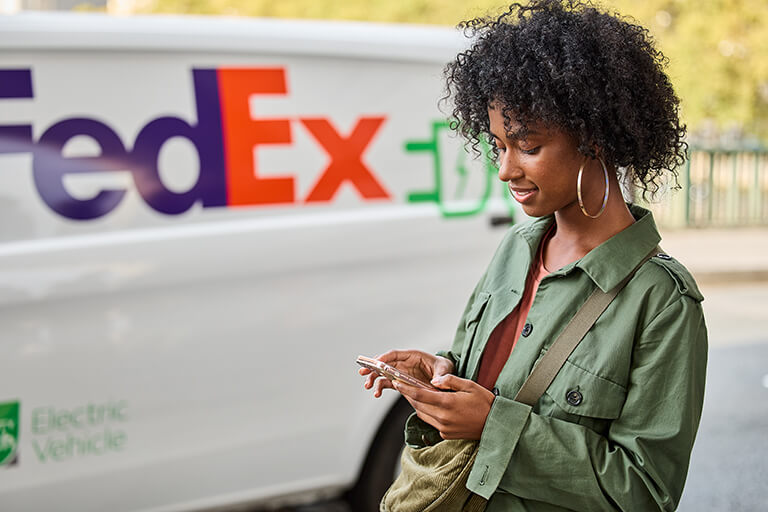Creating Greener And Better Supply Chains In India
The logistics sector plays a pivotal role in leading us to a greener future. In India and beyond, businesses are starting to contribute by adopting more sustainable practices.
With our environment in a state of emergency, collective action is urgently needed to create solutions. Robert Swan, one of the world’s greatest explorers, rightly said, "The greatest threat to our planet is the belief that someone else will save it."
In other words, embracing sustainability is no longer a choice; it is the right thing to do.
Sustainability is now a key driver for success, shaping business strategies across all industries. Embracing sustainable practices fosters innovation, attracts purpose-driven stakeholders, and builds resilience. It helps businesses pave the way towards a cleaner future, where profits align with the well-being of our people and the planet.
The environmental impact of the logistics sector has sparked concerns about the sustainability of industrial operations. People are calling for the transition to green solutions and for businesses to address these concerns.
In other words, embracing sustainability is no longer a choice; it is the right thing to do.
Sustainability is now a key driver for success, shaping business strategies across all industries. Embracing sustainable practices fosters innovation, attracts purpose-driven stakeholders, and builds resilience. It helps businesses pave the way towards a cleaner future, where profits align with the well-being of our people and the planet.
Growing calls for sustainability in the logistics sector
The environmental impact of the logistics sector has sparked concerns about the sustainability of industrial operations. People are calling for the transition to green solutions and for businesses to address these concerns.

In India, the logistics market is set to grow at a compound annual growth rate (CAGR) of 8.36%, reaching US$650.52 billion by 2028, up from US$435.43 billion in 2023. The International Energy Agency also highlighted that the sector contributes to 37% of global carbon emissions, offering a major decarbonization opportunity. With the anticipated rise in GDP and e-commerce, the logistics market value is expected to soar from US$10.7 trillion in 2022 to US$18.2 trillion by 2032.
In today’s business landscape, sustainability is more important than ever for corporates, suppliers, and regulatory bodies. As investors place greater emphasis on ESG criteria, regulatory bodies are implementing stricter regulations and requirements. Rating agencies and indices, such as the Logistics Performance Index (LPI), now incorporate ESG factors into assessments and benchmarks.
Governments and international organizations are also pushing to achieve sustainable development goals through countrywide policies.
Take India as an example, where the Indian government has set a goal to achieve net zero by 2070. To make this happen, it has launched several initiatives, such as the Green Freight Corridor Project and the National Mission on Transformative Mobility and Battery Storage, encouraging adoption of sustainable practices.
Sustainability is everyone’s responsibility
In today’s business landscape, sustainability is more important than ever for corporates, suppliers, and regulatory bodies. As investors place greater emphasis on ESG criteria, regulatory bodies are implementing stricter regulations and requirements. Rating agencies and indices, such as the Logistics Performance Index (LPI), now incorporate ESG factors into assessments and benchmarks.
Governments and international organizations are also pushing to achieve sustainable development goals through countrywide policies.
Take India as an example, where the Indian government has set a goal to achieve net zero by 2070. To make this happen, it has launched several initiatives, such as the Green Freight Corridor Project and the National Mission on Transformative Mobility and Battery Storage, encouraging adoption of sustainable practices.

Moreover, the Securities and Exchange Board of India (SEBI) mandates the top 1,000 listed companies to disclose their environmental and corporate governance initiatives, compelling other companies to align with international best practices.
On an international level, there is a greater push toward private sector responsibility, with the launch of the ISO Net Zero Guidelines at COP27. Together, these efforts drive us towards a more greener future.
ESG integration is now a critical mandate for companies as more stakeholders, particularly millennials and Gen Z consumers, demand sustainable products. A Deloitte survey indicates that 73% of Gen Z consumers are willing to pay extra for sustainable products and prefer working with companies with commitments to sustainability. The results align with our e-commerce research, where 83% of Indian consumers prefer buying from companies with a well-defined ESG strategy.
Indian consumers increasingly prioritize responsible products, meaning companies need to adopt sustainable solutions if they want to grow.
Companies can improve their long-term societal, environmental, and financial value by understanding their impact. Identifying opportunities to integrate sustainability into business strategies is crucial. Visibility is also key. Monitoring and transparently reporting outcomes contribute to this positive transformation.
As one of the world’s largest transportation companies, we’re committed to reducing our carbon footprint. Through the Reduce, Replace, Revolutionize strategy, we at FedEx are taking bold actions to achieve our goal of carbon neutral operations globally by 2040. To make this happen, we have pledged an initial investment of more than US$2 billion in three critical areas:
RELATED: How your business can ship more sustainably
At FedEx, we recognize the unmatched power of data insights in driving sustainability across our value chain. With our FedEx Dataworks team, we use machine learning and predictive tools to monitor time-sensitive shipments and environmental factors proactively.
On an international level, there is a greater push toward private sector responsibility, with the launch of the ISO Net Zero Guidelines at COP27. Together, these efforts drive us towards a more greener future.
Making sustainable consumption a conscious choice
ESG integration is now a critical mandate for companies as more stakeholders, particularly millennials and Gen Z consumers, demand sustainable products. A Deloitte survey indicates that 73% of Gen Z consumers are willing to pay extra for sustainable products and prefer working with companies with commitments to sustainability. The results align with our e-commerce research, where 83% of Indian consumers prefer buying from companies with a well-defined ESG strategy.
Indian consumers increasingly prioritize responsible products, meaning companies need to adopt sustainable solutions if they want to grow.
Driving sustainable success with ESG
Companies can improve their long-term societal, environmental, and financial value by understanding their impact. Identifying opportunities to integrate sustainability into business strategies is crucial. Visibility is also key. Monitoring and transparently reporting outcomes contribute to this positive transformation.
As one of the world’s largest transportation companies, we’re committed to reducing our carbon footprint. Through the Reduce, Replace, Revolutionize strategy, we at FedEx are taking bold actions to achieve our goal of carbon neutral operations globally by 2040. To make this happen, we have pledged an initial investment of more than US$2 billion in three critical areas:
- Vehicle electrification: In line with our global goal, we have deployed 30 Electric Vehicles in New Delhi, and we aim to have an all-electric pickup and delivery fleet by 2040.
- Sustainable energy: We are committed to reducing emissions and waste. In FY22, we invested in 29 on- and off-site solar energy facilities globally, generating 102 terajoules of clean electricity - enough to fully charge more than 14 million smartphones.
- Carbon sequestration: To accelerate research into carbon capture at scale, we pledged USD100 million to Yale University for establishing the Yale Center for Natural Carbon Capture. This initial focus will help offset greenhouse gas emissions equivalent to current airline emissions.
RELATED: How your business can ship more sustainably
Revolutionizing industries with automation and technology
At FedEx, we recognize the unmatched power of data insights in driving sustainability across our value chain. With our FedEx Dataworks team, we use machine learning and predictive tools to monitor time-sensitive shipments and environmental factors proactively.

We’ve also launched the FedEx® Sustainability Insights tool, an innovative cloud-based data engine which uses near-real-time FedEx network data to estimate CO2 emissions. FedEx customers can view emissions data for their shipments to make informed decisions on their future shipping strategy, reducing environmental impact.
RELATED: Calculate your shipping emissions data now
Now, more than ever, embracing sustainability is important, from reducing carbon emissions to building more resilient supply chains. The logistics sector can play a catalyst role in a stronger, smarter, and better future for generations to come.
For more insights on sustainability, visit our page here.
RELATED: Calculate your shipping emissions data now
Responsible logistics is shaping tomorrow's world
Now, more than ever, embracing sustainability is important, from reducing carbon emissions to building more resilient supply chains. The logistics sector can play a catalyst role in a stronger, smarter, and better future for generations to come.
For more insights on sustainability, visit our page here.
***
A version of this article first appeared in ET Insights on July 6, 2023.


















 The Latest
The Latest